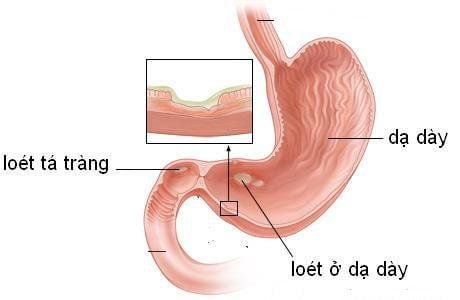This is an automatically translated article.
Unless the child is hospitalized, the administration of medication is left to the parents. Many people worry that: how much should children drink and how should they drink?The dose of the drug is usually prescribed by a doctor or for non-prescription drugs, the dosage is indicated on the medicine box. It is important to know the dose of medicine for the child before bringing the child home from the hospital. For young children, the dose is usually based on the child's weight. Giving children too little or too much medicine carries risks to their health. Therefore, parents need to know the weight of their children.
The time and interval of giving the child medicine is also very important. Parents need to ask the doctor at the hospital carefully. If your child is taking multiple medications at different times of the day, it's best to have the nurse write down a clear dosing schedule so you can follow along. Another thing to keep in mind is that there are many medicines that children need to take on an empty stomach, many of which have to be taken right after eating. Parents need to know what kind of medicine their child will take.
Illustration
The measuring tool is also very important. For liquid medicine, it is recommended to use divided spoons and cups that are sold with the medicine bottle. Regular kitchen spoons should not be used as this can lead to erroneous dosages. Particularly for the dropper that counts drops of medicine, which medicine bottle must use that dropper. Do not use the dropper of one vial to count drops in another vial.
For liquid form, if the label requires shaking the vial before use, shake the bottle vigorously continuously for about 30 seconds.
For infants, giving medication is even more difficult. Infants may only be suitable for liquid medicine. Place your baby in the same position as when breastfeeding or in a high chair. Slowly put the medicine on one side of the child's cheek (do not put the liquid medicine right behind the throat because the medicine can make the child cough, choke, choke...) then gently press the two cheeks of the child with your hands. for the medicine to be swallowed by the child. A pacifier can also be used to put the medicine into the baby's body. Put the medicine in a clean bottle, add a few tablespoons of clean water and stir the bottle well to distribute the medicine evenly. Then breastfeed the baby until the medicine is finished. Rinse the bottle with 2 or 3 tablespoons of clean water and then feed the baby again.
For older children, they can already take medicine in tablet or capsule form. Some types of tablets can be pureed, some capsules can be removed to get the powder inside. However, not all drugs can crush or remove the capsule. It is important to ask the doctor, pharmacist, or nurse at the hospital whether any medications your child will be taking can be crushed or removed. The drug after being crushed or removed from the capsule must be given to the child immediately. Do not leave it for a long time because it will cause the drug to degrade.
Usually children like a certain kind of "gut" flavor. Therefore, it is necessary to find out the children's preferences so that they can easily accept the medicine. Most liquid medicines for children have been prepared in many different flavors, orange, strawberry, vanilla, chocolate...
For medicines that are too bitter, it is recommended that the child suck on an ice sample. small. The cold temperature on the tongue will make the child no longer feel the bitter taste. It is important for parents to note that they should not "fool" children by saying that medicine is candy, tea, syrup... Because the next time they see a dropped pill and they think it is candy, or When you see a potion, you think it's syrup.
In case you are busy with work or for some reason you forget to give your child medicine, you should immediately give it to them as soon as you remember. However, by the time you remember it is almost time to take the next dose, skip the missed dose. Wait until the time for the next dose and then give the child the usual dose (just a normal dose, not a double dose to make up for the missed dose).
How long to take the drug should be according to the doctor's instructions. Do not arbitrarily stop taking the medicine when the child is healthy again. Also, do not arbitrarily increase the dose or use the drug for a long time when the child is still weak.
Before giving medicine to a child, wash your hands with soap and dry them with a clean towel. All medications must be kept out of the reach of children.
DS. NGUYEN BA HUY CONG
(Faculty of Pharmacy - Murdoch University - Australia)













